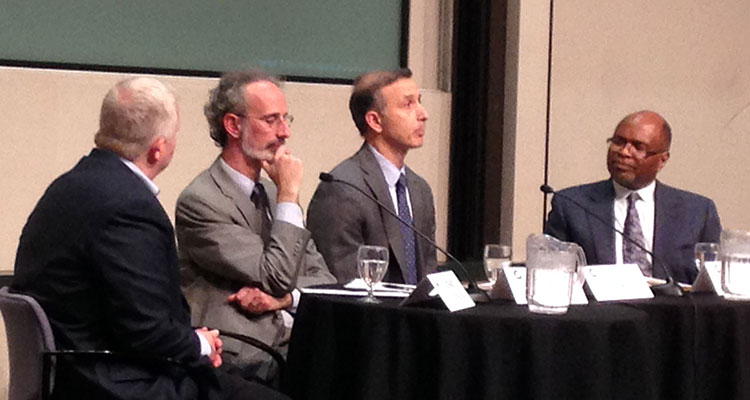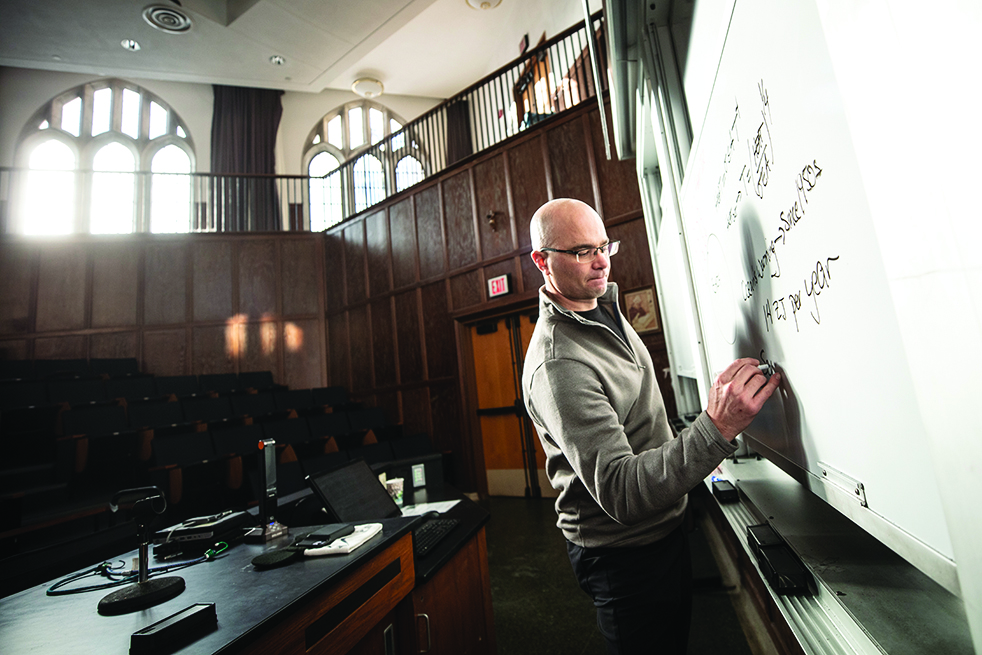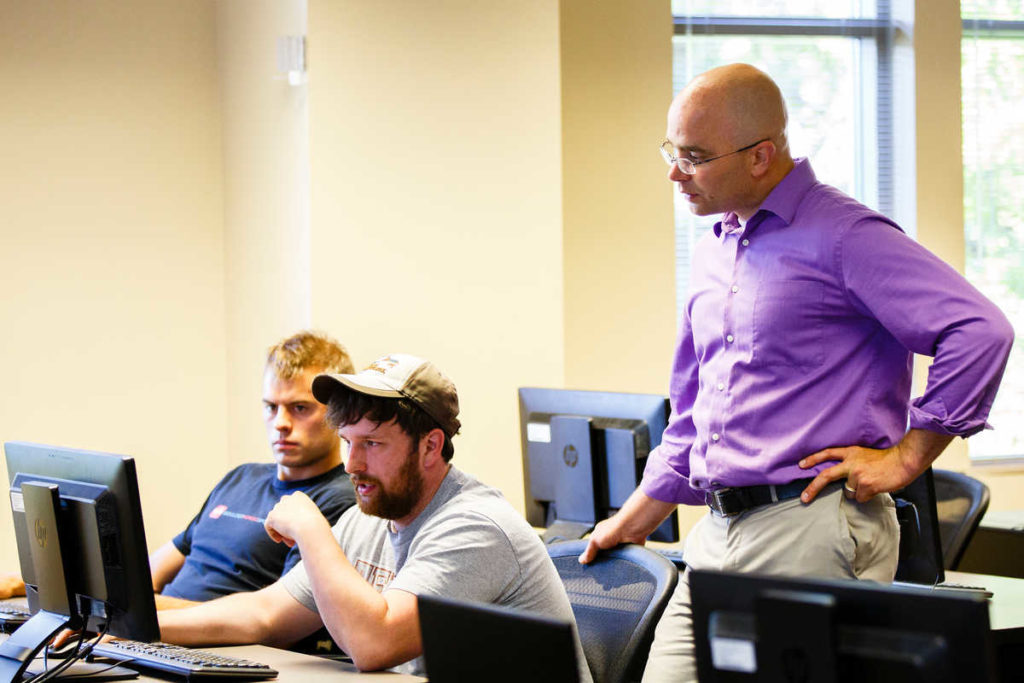The 2014 World Economic Forum identified water as one of the top global risks for society, business and governments. As “the Land of 10,000 Lakes,” Minnesota has a unique network of businesses, talent and thought leadership to address water issues that have positioned us to contribute solutions to regional and global water issues.
Dr. Peter Gleick, president of the Pacific Institute recently spoke at St. Thomas in a Center for Ethical Business Cultures event about the global and local challenges surrounding water.
Water connects to everything.
Gleick, pointed out how essential water is—it takes water to make almost everything. “Water is an input,” he said, pointing out that historically water was thought of as a low cost and unlimited resource. Thus, most businesses have taken water for granted. Gleick argued that those conditions are changing and the risk of conflicts over water seems to be growing.
The Pacific Institute has compiled a Water Conflict Chronology Map that shows more than 300 different water conflicts throughout history.
Gleick noted three ways to think of water as a business risk:
- Physical risk – access good quality water.
- Reputational Risk – public perception around business decisions and social responsibility.
- Regulatory risk – restrictions on water use, government management of water, licensing, pricing, water rights, and quality standards.
He also suggested that there are a lot of solutions to our water problems. “Inevitably we’ll move to a world of sustainable water use,” Gleick said, arguing that in the interim government regulations are an effective way of managing the myriad demands on water systems.
He further suggested there are ways to rethink both water supply and demand. For example reconsidering our limited use of wastewater: Think of wastewater treatment as water recovery plants. On the demand side, among other things, he suggested consumers must match the quality of water we have with quality we need. For example, using greywater for irrigation or in toilets. On a larger scale, he argues that we must rethink water institutions, management, public participation and strategies.
Gleick was then joined by local sustainability executives Jerry Lynch, vice president and chief sustainability officer at General Mills and Emilio Tenuta vice president for corporate sustainability at Ecolab for a discussion of water values, risks and opportunities.
It takes 1000 tons of water to make 1 ton of grain.
Lynch noted that demand (for water and consumer goods) is accelerating as 2 billion new consumers are coming into the market and 3 billion consumers are moving up in the market. General Mills conducted an analysis of water use across the supply chain for their products and found that 99% of water input is upstream in their food ingredients, raising an interesting question about corporate responsibility in water use: “What is the responsibility of a company that doesn’t use water but its supply chain does?”
Tenuta discussed Ecolab’s impact around sustainability. The company serves 1.3 million locations, and has found that they can have a significant impact on water usage by making minor changes of even a few percentage points. “It’s not only about conservation, it’s about stewardship,” he added. From a business view incentives are changing water usage he said. “If you can’t monetize something, you can’t manage it.” If you can’t manage it, it becomes difficult to take steps to curb water usage.
The discussion brought up many different aspects of water’s often overlooked importance in business and as a human right. A video of the event will be posted when it is available.







